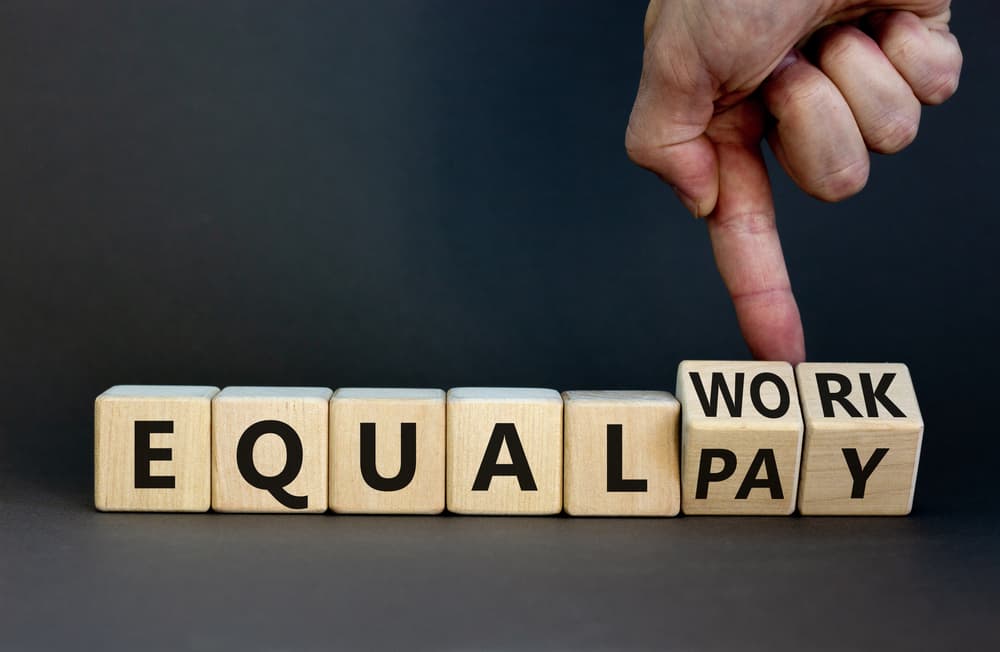Unfortunately, wage discrimination remains a critical issue in today’s society. Despite advancements in labor laws and increased awareness, many individuals still face unequal pay based on their gender, race, age, disability, or other protected characteristics. Understanding your rights in such situations is essential to protecting yourself and demanding fair compensation for your work.
If you have experienced wage discrimination, it is vital to be well-versed in your legal rights and take action. Wage discrimination occurs when an individual is paid less based on their protected characteristics, such as gender, race, or age, rather than their skills or qualifications. It can be both frustrating and disheartening, as you should be compensated fairly for your work.
If you believe you have been a victim of wage discrimination, now is the time to gather evidence and seek legal advice. Contact a San Diego equal pay lawyer to discuss your case, as they can provide guidance and handle the legal process. You have the right to be treated equally and fairly in the workplace—including when it comes to income. By taking action and asserting your rights, you can fight against wage discrimination and ensure that you are compensated fairly for your efforts.
Schedule a Free Case Evaluation
Overview of Wage Discrimination

Wage discrimination refers to the unequal treatment of employees in terms of compensation based on their protected characteristics. While pay disparities can exist for various reasons, wage discrimination occurs explicitly when an individual is paid less than others who perform similar work and have similar qualifications solely because of their protected characteristics.
Wage discrimination can take many forms and affect different groups of people. For instance, women are often paid less than their male counterparts for performing the same job. Similarly, employees of other racial backgrounds may face unequal pay for similar work. Age-based income disparities can also occur, with older employees being paid less than their younger colleagues. Additionally, individuals with disabilities may face discriminatory pay practices despite their qualifications and contributions to the workplace.
Wage discrimination’s impact extends beyond a mere disparity in pay. It can hinder career growth, limit financial stability, and undermine overall workplace morale. Addressing and eradicating wage discrimination is critical for promoting equality, diversity, and fair treatment in all workplaces.
Understanding Wage Discrimination
To address wage discrimination effectively, it is essential to understand the relevant federal and state laws that protect employees from such unfair practices. Several laws have been enacted to prohibit wage discrimination and ensure equal pay for all individuals.
The Equal Pay Act (EPA)
The Equal Pay Act (EPA) is a federal law that ensures equal pay for equal work, regardless of gender. It prohibits employers from paying employees differently based on their sex for work that requires equal skill, effort, and responsibility under similar conditions.
Title VII of the Civil Rights Act
Title VII of the Civil Rights Act is another vital federal law that protects employees from pay discrimination. This act prohibits employers from discriminating against employees based on race, color, religion, sex, or national origin. It ensures that employees are compensated fairly and treated equitably, regardless of their protected characteristics.
The Age Discrimination in Employment Act (ADEA)
The Age Discrimination in Employment Act (ADEA) prohibits employers from discriminating against employees who are 40 years of age or older based on their age. This law ensures that older employees receive equal compensation and are not subjected to unfair pay disparities due to their age.
The Americans with Disabilities Act (ADA)
The Americans with Disabilities Act (ADA) protects employees with disabilities from discriminatory pay practices. It ensures that they receive fair compensation based on their qualifications and job performance, regardless of their disabilities.
These federal laws apply to both private and public employers, ensuring that employees in various workplaces are protected against wage discrimination. The Equal Employment Opportunity Commission (EEOC) plays a significant role in investigating wage discrimination claims and enforcing these laws.
How to Identify Wage Discrimination in Your Workplace
Identifying wage discrimination in the workplace can be challenging, as employers often cloak such practices or provide justifications that may appear legitimate. However, some signs can indicate you may be experiencing wage discrimination.
Some common signs of wage discrimination include:
- Discovering that a coworker with similar experience and responsibilities earns more than you.
- Receiving lower pay raises or bonuses compared to colleagues with the same qualifications.
- Being denied overtime pay, promotions, or benefits without valid justification.
- Witnessing patterns of discrimination where certain employees consistently earn less despite performing similar work.
If you suspect wage discrimination, gather evidence to support your claim as soon as possible. Review your pay stubs, company policies, and job descriptions to identify any disparities. Keep records of conversations, performance reviews, and salary negotiations, as they can serve as evidence in your case.
What to Do If You Suspect Wage Discrimination
If you suspect wage discrimination in your workplace, take appropriate action. First, speak with your employer or HR department to clarify any pay discrepancies and understand the company’s compensation policies. Document any communication and keep a record of emails, performance evaluations, and salary comparisons.
If internal resolution fails, you may need to file a complaint internally if your employer has a grievance process. If the internal process does not yield satisfactory results, it is in your best interest to seek legal representation and consult an employment lawyer who is well-versed in wage discrimination cases. An experienced employment attorney can guide you through the legal process, help you understand your rights, and assess the strength of your case.
You should also be aware of the EEOC complaint process. If you decide to pursue a formal complaint, you can file a claim with the EEOC. They will investigate your case and take appropriate action if wage discrimination is found. However, there are statutes of limitations for filing wage discrimination claims, so taking prompt action is imperative.
Legal Remedies and Compensation for Wage Discrimination

Victims of wage discrimination may be entitled to various legal remedies and compensation. These can include:
Back Pay
One of the primary forms of compensation in a wage discrimination claim is back pay—the income an employee should have received had they been paid fairly and equitably. Back pay compensates for the difference between what an employee was paid and what they should have been paid over a specific period.
Additionally, back pay can include lost benefits such as:
- Unpaid bonuses or commissions that the employee should have received.
- Retirement contributions that were lower due to wage discrimination.
- Stock options or profit-sharing benefits that were affected by unfair compensation.
By awarding back pay, courts aim to restore employees to the financial position they would have been in if wage discrimination had not occurred.
Compensatory and Punitive Damages
In addition to recovering lost income, employees may also be entitled to compensatory and punitive damages, depending on the severity of the wage discrimination and the employer’s conduct.
Compensatory damages are designed to compensate employees for the emotional distress and suffering caused by wage discrimination. Employees who face financial hardship, stress, anxiety, or mental anguish due to being underpaid may receive compensation for their non-economic losses.
For instance, if an employee struggles to pay for housing, medical bills, or education expenses due to unfair wages, they may seek compensatory damages to reflect these financial burdens. Courts recognize that wage discrimination does not just affect a paycheck—it can lead to significant stress, financial insecurity, and decreased quality of life.
Punitive damages, on the other hand, are awarded to punish the employer for particularly egregious conduct. If an employer knowingly engaged in wage discrimination or retaliated against an employee for filing a complaint, courts may impose punitive damages to deter future violations.
For example, if a company has a pattern of underpaying women or employees of a certain race and intentionally ignores complaints, the court may order punitive damages. These damages send a strong message that wage discrimination will not be tolerated and that companies that engage in such practices may face severe financial consequences.
The availability of compensatory and punitive damages depends on the specific laws governing wage discrimination claims, such as the Equal Pay Act (EPA) or Title VII of the Civil Rights Act. A reputable discrimination attorney can help determine whether these damages are applicable in a particular case.
Legal Fees and Court Costs – Recovering the Expenses of Pursuing a Wage Discrimination Case
Filing a wage discrimination claim often involves legal expenses, court fees, and attorney costs. Fortunately, many wage discrimination laws allow employees to seek reimbursement for legal fees and related expenses, ensuring that victims of unfair pay practices are not financially burdened for seeking justice.
Legal fees may include:
- Attorney’s fees for representing the employee in negotiations, mediation, or trial.
- Filing fees for submitting legal documents to the court.
- Expert witness fees if testimony is needed to prove wage discrimination.
- Investigation costs for gathering evidence, such as reviewing payroll records or interviewing witnesses.
Some employees may be discouraged from filing claims due to financial constraints if they cannot recover legal fees. By awarding legal costs, courts ensure that employees can pursue wage discrimination cases without fear of excessive financial burden.
Many employment discrimination attorneys work on a contingency basis, meaning they only get paid if the employee wins their case. Consulting an employment discrimination lawyer can help determine whether legal fees can be recovered and ensure the strongest possible case is presented.
Workplace Policy Changes – Forcing Employers to Adopt Fair Pay Practices
Beyond financial compensation, wage discrimination cases often lead to significant policy changes within organizations. Courts may require employers to revise their compensation structures, ensuring that future pay decisions are transparent, equitable, and compliant with anti-discrimination laws.
As part of a settlement or court order, an employer may be required to conduct a company-wide pay audit to identify pay disparities and take corrective action. This can involve:
- Increasing income for underpaid employees to align with fair pay standards.
- Implementing standardized pay scales to ensure consistency in compensation.
- Revising performance evaluation criteria to prevent biased pay decisions.
Employers may also be required to implement anti-discrimination training programs to educate management and HR teams on fair pay practices. Courts may mandate regular training sessions to prevent wage discrimination and ensure compliance with laws such as the Equal Pay Act and Title VII.
Some companies may also be required to publicly disclose salary structures to promote transparency and accountability. This helps prevent future wage disparities and encourages equal pay for equal work across all employees.
By enforcing workplace policy changes, wage discrimination cases create long-term improvements that benefit both employees and organizations.
The Role of an Employment Lawyer in Wage Discrimination Cases

When facing wage discrimination, you want to have a knowledgeable employment discrimination lawyer by your side. Employment lawyers possess the knowledge and experience to evaluate wage discrimination claims and develop the best legal strategies to defend your rights.
Because wage discrimination laws are complex, working with a skilled employment discrimination attorney can help you understand your legal options, build a strong case, and fight for the compensation you deserve. An attorney can:
- Evaluate your salary history and compare it with similarly situated employees.
- Gather evidence of discrimination, including payroll records, emails, and witness testimony.
- Negotiate a fair settlement or represent you in court.
- Ensure you receive the maximum compensation possible, including back pay, damages, and legal fees.
Their experience in employment law and dealing with employers, HR departments, and corporate attorneys can be invaluable in achieving a positive outcome.
To protect your rights effectively, it is important to consult an attorney as soon as possible after experiencing wage discrimination. Delaying legal action can limit your options and chances of success.
Take Action Against Wage Discrimination – Contact an Employment Attorney Today
If you suspect that you are a victim of wage discrimination, you do not have to accept unfair pay practices. Employees have the legal right to seek compensation for lost income, emotional distress, and legal expenses, as well as advocate for workplace policy changes that promote fair and equal pay.
Wage discrimination is not just a financial issue—it is a violation of basic workplace rights. Legal action can help restore lost income, hold employers accountable, and ensure fair pay for future employees.
If you believe you have been underpaid due to discrimination, contact an employment law attorney today to discuss your case and take the first step toward justice.





